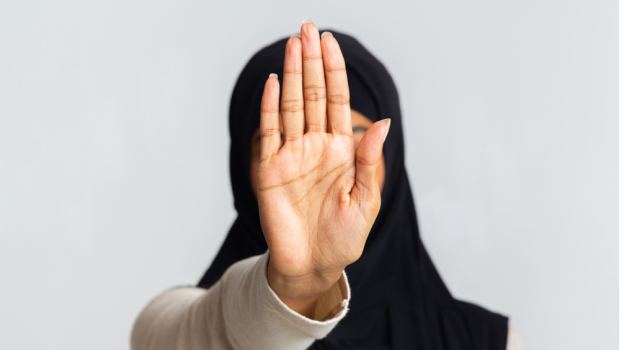Are You a Victim of Workplace Discrimination?
Discrimination at work is illegal. Whether you’ve been denied a promotion, terminated, or harassed because of who you are, EFLL is here to fight for you.
4.9 Overall Rating
10,000+
Clients Helped
$100M+
Recovered
Free Case Consultation within 24 hours
Don’t lose benefits due to delay. No-fee guarantee
Discrimination at work is illegal.
Whether you’ve been denied a promotion, terminated, or harassed because of who you are, EFLL is here to fight for you.
California law protects employees from being treated unfairly based on certain protected characteristics. If your employer has taken adverse action against you because of your race, gender, age, disability, religion, or pregnancy status, you may have a valid claim under the California Fair Employment and Housing Act (FEHA) or Title VII of the Civil Rights Act of 1964.

Types of Workplace Discrimination
We treat our clients like family. We look to our clients as if they were part of our extended family that we look after. You’ll be able to tell the difference almost immediately. Each of our clients are a brother, sister, father, mother, cousin, grandparent to someone, and we would appreciate if our family were treated this way. You could say that se subscribe to the “golden rule”. As a result, many of our clients refer other matters to our law firm, and we have handled personal injury matters, car accidents, and several other types of cases for many of our previous clients. We look forward to showing you the Employees First Labor Law difference.

Race & National Origin Discrimination
Race and national origin discrimination includes unfair treatment based on a person’s race, ethnicity, cultural background, accent, or perceived origin. This can involve being passed over for promotions in favor of less qualified individuals, racially charged comments or slurs from coworkers or supervisors, and unequal disciplinary action. In many cases, it also includes exclusion from workplace opportunities or retaliation for speaking up. California law, including FEHA, provides strong protections against such conduct.

Gender & Sex Discrimination
Gender discrimination involves treating an employee differently because of their sex, gender identity, or gender expression. This includes being paid less than a male coworker for the same job, being excluded from advancement opportunities due to gender stereotypes, or facing harassment for identifying as transgender or non-binary. California law explicitly protects against discrimination based on gender identity and sexual orientation, making it unlawful for employers to treat employees differently based on who they are.

Age Discrimination
Age discrimination occurs when employees over 40 are treated less favorably because of their age. This often happens through subtle practices such as favoring younger workers for promotions, suggesting that older employees retire, or targeting older workers during layoffs. Employers may also make comments like “we need fresh energy” or “you’re not tech-savvy enough.” These actions can violate both FEHA and the federal ADEA, and employees have a right to challenge age-based bias.

Disability Discrimination
Employers are legally required to provide reasonable accommodations to workers with physical or mental disabilities, and cannot terminate or demote an employee because of their condition. Disability discrimination may include denying requests for modified duties, medical leave, or remote work arrangements. Employers also cannot harass or create a hostile environment based on your disability. Both the ADA and FEHA require a good-faith interactive process to explore accommodations, and failure to do so is a violation in itself.

Religious Discrimination
Religious discrimination involves treating an employee unfairly due to their sincerely held religious beliefs or practices. This includes refusing to allow prayer breaks, mocking religious clothing (such as hijabs, yarmulkes, or turbans), or denying schedule changes to accommodate observance. Employers are required to accommodate reasonable religious practices unless doing so would cause an undue hardship.

Pregnancy Discrimination
Pregnancy discrimination occurs when an employee is treated negatively because they are pregnant, have given birth, or have a medical condition related to pregnancy. Common violations include being denied accommodations like light duty, being forced onto leave, or being fired after announcing a pregnancy. California’s Pregnancy Disability Leave Law (PDLL), FEHA, and CFRA all provide overlapping protections for pregnant workers, requiring job-protected leave, accommodations, and reinstatement.
Proving Discrimination
Discrimination can be proven through:
Direct Evidence
(emails, comments, written policies)
Circumstantial Evidence
(suspicious timing, inconsistent treatment)
Comparator Evidence
(how others were treated differently)
Statistics and Patterns of Conduct
You do not need a “smoking gun” to prove discrimination—just evidence that shows bias was a motivating factor in your employer’s decision-making.

Interactive Process Failures
In disability and pregnancy-related cases, employers must engage in a timely, good-faith interactive process to explore reasonable accommodations. Refusing to talk, delaying, or outright denying accommodations is a violation of California law. Failure to accommodate and failure to engage are independent legal violations under FEHA. To better understand how this works in practice and what your rights are, visit our Disability and Pregnancy Accommodations page.
We Take Sexual Harassment Seriously.
Real EFLL Cases That Made a Difference
$725,000 for An Executive Passed Over for Promotion Based on Gender
$850,000 for A Pregnant Hospital Employee Terminated After Requesting Light Duty
$920,000 for A Restaurant Worker Terminated After Disclosing A Disability & Requesting Leave
We build evidence-driven cases that result in justice for our clients.
READ OUR BLOG
5 Common Signs of Workplace Discrimination You Shouldn’t Ignore
Discrimination isn’t always obvious. Learn how to identify subtle but serious signs—like unfair treatment, exclusion, or biased feedback—so you can take action early.
Know Your Rights: What to Do If You’re Facing Discrimination at Work
If you’re being treated unfairly based on race, gender, religion, or disability, you have legal protections. This post walks you through the steps to protect yourself.
Got A Question?
We’ve Answers.
Discrimination occurs when an employee is treated unfairly based on race, gender, age, disability, religion, sexual orientation, or other protected characteristics.
Signs include unequal pay, denied promotions, unjust discipline, termination, or offensive comments targeting your identity or background.
Yes. Federal and state laws prohibit discrimination based on religion, ethnicity, and national origin. You have the right to a respectful, fair workplace.
Document incidents, report them to HR, and consider speaking with an employment attorney to understand your rights and legal options.
No. That’s retaliation, and it’s illegal. Employers cannot punish you for standing up against discrimination or filing a complaint.
Follow us on Instagram
View this profile on InstagramEmployees First Labor Law - Jonathan P. LaCour, Esq. (@employeesfirst) • Instagram photos and videos
Contact EFLL for Help Today
If you believe you’ve been discriminated against at work, don’t wait. Time limits apply and early documentation is critical.
Request A Free Consultation:
OFFICE LOCATIONS
EMPLOYEES FIRST LABOR LAW - LONG BEACH
- One World Trade Center, 8th Floor Long Beach, CA 90802



